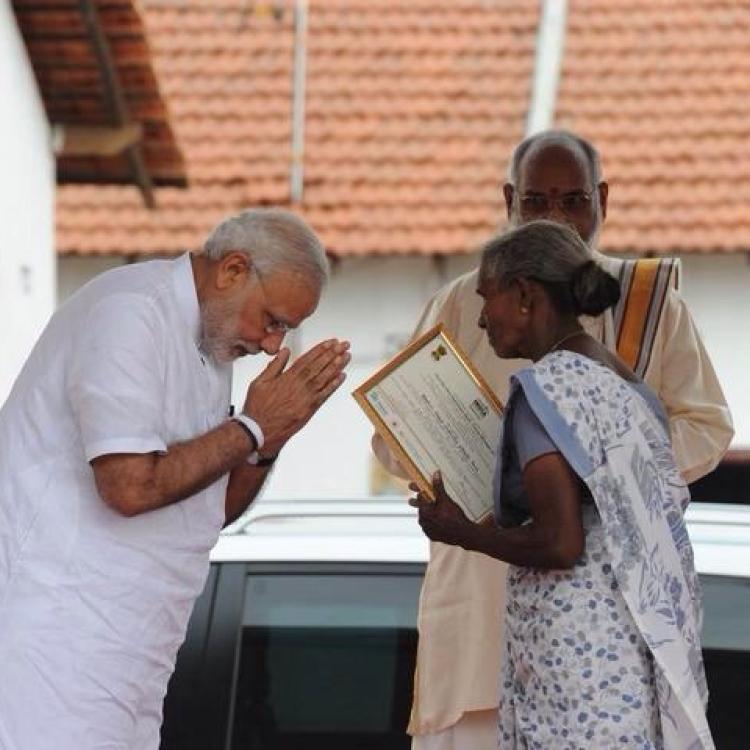Indian Prime Minister Narendra Modi said he hoped Sri Lanka would “meet the aspirations of the Tamil people” during a state visit to the island this weekend, while unveiling a slate of development projects and signing a defence agreement with Colombo.
Addressing the media alongside Sri Lankan president Anura Kumara Dissanayake in Colombo, Modi stated, “We hope that the Sri Lankan Government will meet the aspirations of the Tamil people and fulfil its commitment towards fully implementing the Constitution of Sri Lanka, and conducting Provincial Council Elections.”
.jpg)
Modi did not elaborate on the specific aspirations he referenced. The 13th Amendment to the Sri Lankan constitution, which was enacted through the 1987 Indo-Lanka Accord mandates the creation of a merged North-East and a Provincial Council system, which has long been criticised as Tamils for not allowing adequate devolution. Dissanayake’s party fought staunchly against the accord and state it remains against its implementation.
In his speech, Modi quoted a verse from the revered Tamil classic Thirukkural, highlighting the importance of “secure friendship as a protection against foes,” and underscored India’s longstanding relationship with the island. “India is proud to have fulfilled its duties as a true friendly neighbour,” he said.
.jpg)
This visit marked Modi’s fourth as Prime Minister and his first since the National People’s Power (NPP) government assumed office. He was conferred with Sri Lanka’s highest civilian honour for foreign dignitaries, the Sri Lanka Mitra Vibhushana, in recognition of his role in strengthening bilateral relations.
The visit largely focused on strengthening bilateral economic cooperation. In a wide-ranging address, Modi emphasized India’s ongoing commitment to Sri Lanka’s development and stability, highlighting India’s support during key crises such as the 2019 Easter bombings, the COVID-19 pandemic, and recent economic challenges.
“These developments underscore the deepening ties between India and Sri Lanka, with a focus on mutual growth, energy security, and addressing the aspirations of diverse communities within Sri Lanka,” he said.
.jpg)
Modi's visit included the announcement of several India-backed initiatives. He unveiled a new LKR 2.4 billion socio-economic assistance package targeting development in the Eastern Province and inaugurated Sri Lanka’s largest warehouse for agricultural goods in Dambulla.
Energy development also featured prominently. Modi and President Dissanayake launched the long-delayed 120MW Sampur Solar Power Plant in Trincomalee. They also presided over a tripartite agreement with the United Arab Emirates to transform Trincomalee into a regional energy hub and signed a landmark MoU for cross-border electricity grid interconnection—offering Sri Lanka a potential energy export pathway.
Modi also announced the construction of 10,000 new homes for the Indian-origin Upcountry Tamil community.
In Anuradhapura, Modi and Dissanayake inaugurated the refurbished 128-km Maho-Omanthai railway line and launched work on a modern signalling system for the Maho–Anuradhapura segment, both financed by Indian aid. Modi also pledged India’s assistance for renovating the Thirukoneswaram temple in Trincomalee, and developing the Sita Eliya temple in Nuwara Eliya, as well as a “Sacred City” project around the Anuradhapura Mahabodhi complex.
To further bolster “cultural ties”, Modi announced that sacred relics of the Buddha discovered in Gujarat would be sent to Sri Lanka for public exposition during International Vesak Day celebrations in May.
.jpg)
The visit also included the signing of a defence cooperation MoU.
Shri Vikram Misri, Indian Foreign Secretary reiterated Dissanayake’s assurance to Modi that Sri Lankan territory—land and maritime—would not be used in any way detrimental to India’s security.
“We believe that we have shared security interests,” declared Modi. “The security of both countries is interconnected and co-dependent.”
“I am grateful to President Disanayake for his sensitivity towards India’s interests. We welcome the important agreements made in the area of Defence Cooperation. We have also agreed to work together on the Colombo Security Conclave and Security Cooperation in the Indian Ocean.”
Modi’s engagements also included with a visit to the Indian Peace Keeping Force (IPKF) memorial and meetings with Tamil political leaders.
.jpg)


